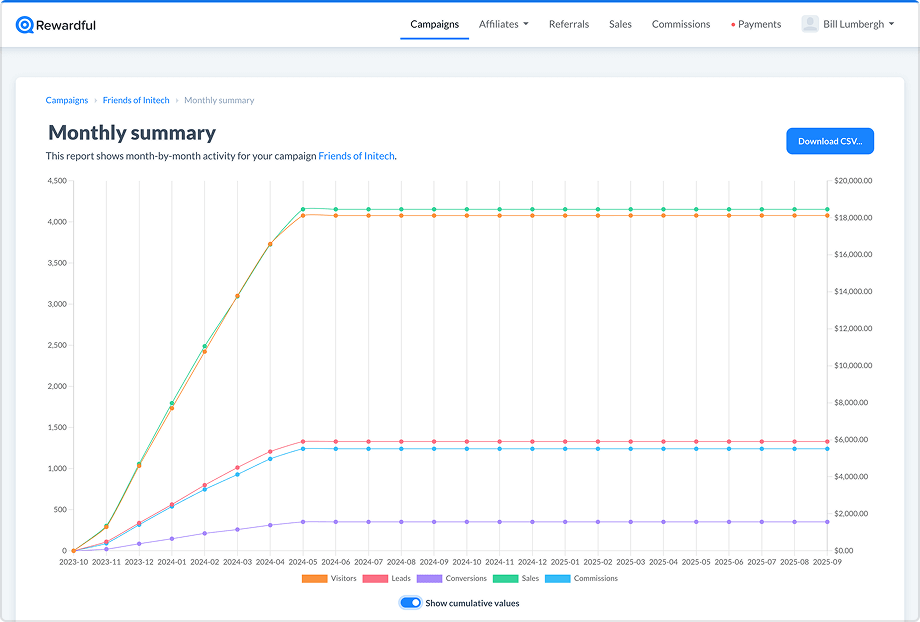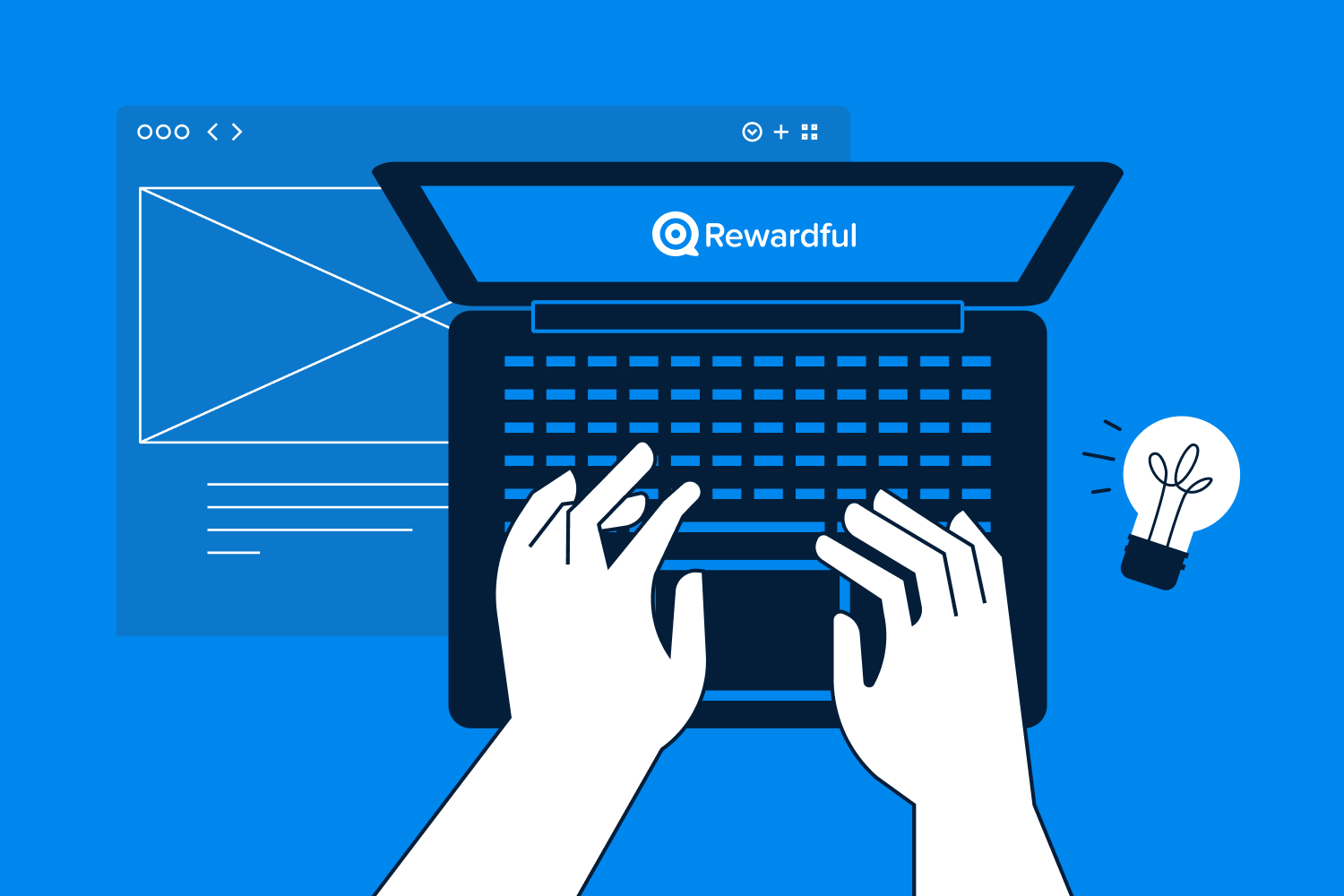If you're managing affiliates in the health and wellness space, your partners aren't just promoting your products—they're making recommendations that directly impact people's well-being.
Their audiences trust them with their health goals, their fitness journeys, and sometimes even their medical decisions.
And it all ties back to your brand.
That's exactly why niche affiliate management, like health and wellness, requires a specialized approach.
Here's how to manage affiliates in this industry while maintaining the high standards it demands.
Niche Affiliate Management: The Three Types of Health & Wellness Affiliates
While a software affiliate might need to understand features and benefits, health and wellness affiliates need to navigate complex regulations, maintain professional credentials, and handle sensitive health information, among others.
It's one of the most challenging yet can be the most rewarding affiliate marketing niche.
With every action your partner takes, they need to remember that their recommendations can directly impact someone's physical and mental well-being. This raises the stakes significantly and requires a different management approach.
Let's first look at what types of affiliates you can find in this space.

1. Wellness Educators
Yoga instructors, personal trainers, and wellness coaches fall into this category.
They work directly with clients, sell courses, or are coaches and often have deep, trusted relationships with their audiences.
Managing them effectively requires:
- Clear guidelines about the scope of practice to ensure they don't overstep into medical advice
- Resources they can integrate into their teaching, like workout plans or nutrition guides that complement their existing programs
- Support for proper client communication, including templates and scripts that maintain professional boundaries
- Tools like coupon codes for tracking student referrals professionally without disrupting the instructor-student relationship
- Training materials that help them incorporate your product naturally into their teaching methodology
These affiliates do their best work when you help them integrate your product naturally into their existing wellness programs.
They can become your most enthusiastic advocates because they see how your product improves their clients' results daily.
2. Content Creators and Influencers
Content creators in the health and wellness industry include wellness influencers, health bloggers, and social media personalities.
While they might have significant reach, they need support that is different from traditional affiliates.
For instance, their content needs extra scrutiny to ensure it doesn't make unfounded health claims or promote unrealistic expectations. You also want your product to fit in naturally with their native content yet stand out at the same time.
To manage this affiliate marketer group, focus on:
- Detailed health claim guidelines that specify exactly what they can and cannot say about your product's benefits (chock-full of examples, preferably)
- Regular compliance check-ins to review their content and provide feedback
- Content review processes that catch potential issues before publication
- Training on responsible marketing practices in the health and wellness space
Content creators need more hands-on management than in other industries because their reach amplifies both opportunities and risks. A misplaced health claim or exaggerated benefit can quickly spread to thousands of followers, so your affiliate marketing approach needs to be proactive rather than reactive.
Related: Discover some expert tips on creating and distributing influencer coupon codes.
3. Healthcare Professionals
Healthcare practitioners may be the smallest partnership group but can have the biggest impact.
They include doctors, physical therapists, nutritionists, and other licensed professionals. These affiliate marketers bring immense credibility to your product and affiliate program, but they also come with strict professional requirements.
Their endorsement can be incredibly powerful.
After all, people trust their healthcare providers' recommendations above almost anyone else's. However, managing these affiliates requires careful attention to their unique needs and constraints.
Managing these affiliate marketers means:
- Providing scientifically-backed materials they can share with patients, including clinical studies, research papers, and professional-grade documentation
- Creating resources that align with professional medical standards and can withstand scrutiny from medical boards and regulatory bodies
- Maintaining clear documentation for compliance with healthcare regulations, including HIPAA requirements
- Developing communication materials that meet medical advertising guidelines
The key is streamlining participation while maintaining professional standards. These affiliates are busy practitioners, so they should make their affiliate activities efficient and compliance-friendly.
Pro tip: Learn how to set up a co-marketing effort with your top affiliates in this FREE affiliate marketing guide.
Building a Successful Health and Wellness Affiliate Management System
A robust affiliate management system is the cornerstone of any thriving health and wellness affiliate program. Given the industry's unique requirements for precision and care, it's crucial to implement a system that benefits both you and your affiliates.
Let's get into the key steps to achieve this.

A. Verification and Compliance
In health and wellness, verification goes beyond checking basic affiliate credentials. For healthcare professionals, you'll need to verify their licenses and certifications but also track their continuing education to ensure they stay current.
You could also implement a content review system where affiliates submit their major promotional materials for approval before publishing. For instance, if a nutritionist affiliate wants to promote your supplement line, have them submit their planned content—from social posts to email sequences—for review. This prevents potential issues with health claims while giving affiliates clear guidance on what they can and can't say.
Always keep detailed records of all compliance training and reviews. In the health and wellness space, you might need to demonstrate your due diligence in managing affiliate claims and communications.
B. Resource Management
Different types of health and wellness affiliates need different resources, and these need regular updates as research and regulations evolve. Create a resource library that's both wide-ranging and easy to navigate—covering even the smallest details.
It can also be helpful to maintain a database of clinical studies, research papers, and professional guidelines related to your products. Update this regularly when new studies and findings emerge. For instance, when a new study supports your product's benefits, create summary documents that these affiliates can quickly reference in their practice.
For wellness educators, you could develop integration guides that show how your product fits into various teaching scenarios.
If you're selling a meditation app, for example, create specific guides for yoga teachers, fitness instructors, and wellness coaches showing how they can incorporate your app into their classes or client sessions.
C. Performance Tracking
In the health and wellness space, tracking performance requires looking beyond basic sales metrics.
Set up systems to monitor:
Customer retention rates throughout the wellness journey
This is crucial because health and wellness products often require consistent, long-term use for best results.
Track not just initial sales but how long referred customers stick with your product (and how your affiliates contribute to how long customers stay on board).
Engagement with educational content
Monitor how affiliates' audiences interact with educational materials.
Are they watching the full product tutorial videos or reading the complete wellness guides?
This indicates how well affiliates are preparing their audiences for success with your product.
Compliance adherence over time
Keep detailed records of how well each affiliate maintains compliance with health claim guidelines.
This helps you identify who might need additional training or support.
Related: Looking for the best affiliate software with a solid tracking feature? Check the best affiliate tracking tools.
Nurturing Growth: A Health and Wellness Affiliate Management Approach
Managing health and wellness affiliate programs demands a unique approach to professional development.
Unlike standard affiliate programs, this sector requires a more holistic strategy that fosters both promotional skills and industry expertise.
A Foundation for Growth
Begin with a comprehensive training program that covers not only your product but also essential compliance regulations and effective communication strategies tailored to health products.
As affiliates demonstrate reliability and success, provide opportunities for advanced training, such as:
- Specialized workshops with healthcare professionals
- Access to premium research resources
- Advanced compliance training
Cultivating Leadership
To further empower your top-performing affiliates, consider creating leadership roles that align with the wellness industry:
- Mentorship: Encourage experienced affiliates to guide newcomers.
- Wellness education: Facilitate sessions on health topics.
- Product development: Involve them in shaping future offerings.
By implementing these strategies, you can nurture a thriving community of knowledgeable and motivated affiliates who contribute to the growth and success of your health and wellness brand.
Communication That Builds Trust
Communication in health and wellness affiliate management requires special attention to tone, accuracy, and professionalism. Set up regular check-ins that go beyond sales numbers—discuss industry developments, new research, and changing regulations that might affect how affiliates promote your products.
Create different communication channels for different purposes. Use a secure platform for sharing sensitive information like clinical data or customer health trends. Maintain separate channels for compliance updates versus general announcements. This helps affiliates quickly find the information they need while protecting sensitive data.
Regular webinars or virtual meetings should focus on both product updates and professional development. These sessions might include guest speakers from the healthcare community, compliance experts, or successful affiliates sharing best practices. Bonus points if you record these sessions and make them available in your resource library for future reference.
Top tip: First-time webinar host? Here’s your checklist for a smooth affiliate webinar.
Experience a Smooth Niche Affiliate Marketing Journey with Rewardful
The key to successful health and wellness affiliate management lies in integration. Your verification system, compliance monitoring, resource management, communication strategy, and performance tracking should all work seamlessly together. When these elements align, you can unlock the full potential of your affiliate program.
Want to see how Rewardful can help you manage your health and wellness affiliate program more effectively?
Start your 14-day free trial and discover why health and wellness brands like Constance App trust us to manage their niche affiliate marketing.
Other health and wellness affiliate marketing guides that may interest you:















